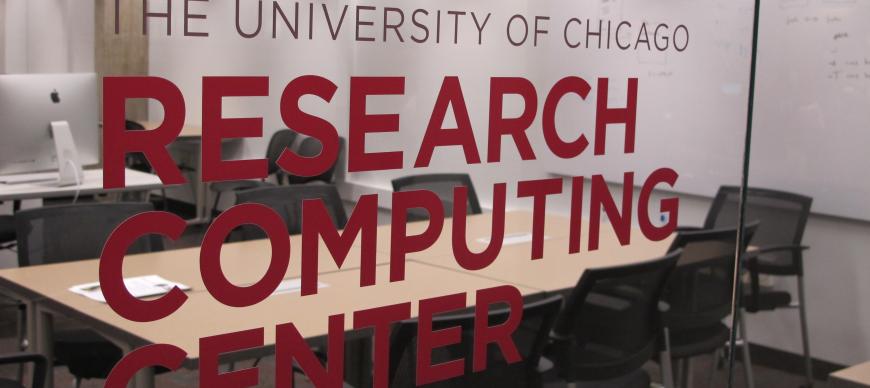The Research Computing Center (RCC) is dedicated to providing the University of Chicago community a full-service high-performance computing (HPC) center, including visualization resources, access to software, workshops, one-on-one consulting with domain experts, and complete data-management strategies to researchers across all departments and divisions.
In recent years, computing has become increasingly important to scholars to the extent where it is now widely recognized as the third pillar of science, alongside theory and experimentation. As computing technologies advance, the problems that modern hardware and software can address are growing continually in scope and at a faster pace. Concomitant with the growth in capabilities is a rapid increase in the complexity of maintaining cutting-edge, high-performance equipment and developing scientific applications that perform efficiently on new hardware, setting the stage for the centrally managed RCC.
Research Computing, within the Office of the Executive Vice President for Research. Innovation, and National Laboratories, was created in early 2010 as a result of a year-long review process set in motion by President Robert Zimmer and carried out by an ad hoc Committee on Research Computing Infrastructure chaired by Donald Levy, Vice President for Research and for National Laboratories, and supported by a team of outside experts.
The Research Computing Center was formally introduced to the UChicago community on November 8, 2012, with a mission to advance research and scholarship at the University of Chicago. Since then, the Midway cluster has continued to expand, making it one of the top 500 HPC clusters in the world and the largest on the University of Chicago campus. In November 2016, RCC added Midway2 to its stable, providing even more computational power to users. The RCC user base has grown to over 300 principal investigators and 2000 general users. RCC users come from almost every division and department within the university.
In addition to providing centralized compute resources, the RCC hosts more than twenty workshops, symposiums, and speakers every year that focus on HPC-related topics. Our team of computational scientists, application developers, and research programmers assist researchers and groups of all skill levels to effectively utilize our computational resources to transform and realize the power of their inquiries. RCC domain experts have made significant contributions to dozens of published research projects. A team of technical support staff responds to user issues and questions within a matter of hours, and in January 2014 the RCC opened a walk-in user lab in the Regenstein Library so that researchers can receive on-site support.
Contact us to learn more.
